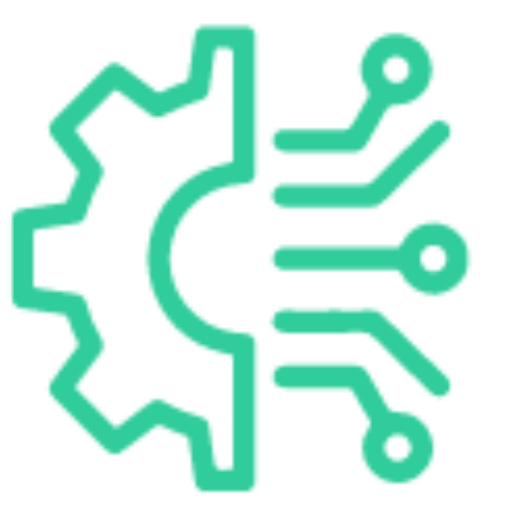From real-time customer interactions to complex data-driven decisions, AI is transforming how businesses operate and compete. With this adoption, the cloud has become an essential infrastructure for AI development, providing scalable computing power and data storage on-demand. However, while the cloud accelerates AI innovation, it also introduces unique challenges around security, compliance, and operational efficiency.
This blog explores how to secure and optimize AI development in the cloud, ensuring that your AI initiatives remain both robust and resilient in a rapidly changing environment.
The Benefits of AI Development in the Cloud
Cloud infrastructure offers a variety of benefits that make it an ideal platform for AI development:
- Scalability: Cloud platforms enable AI teams to access powerful computing resources that scale according to their needs, making it easier to manage large datasets and perform complex model training.
- Cost Efficiency: By eliminating the need for expensive on-premises hardware, the cloud allows companies to adopt a pay-as-you-go model, which can significantly reduce costs, especially for high-performance computing (HPC) requirements.
- Collaboration: The cloud facilitates collaboration across teams and geographies, enabling data scientists, engineers, and business teams to work on a unified platform.
However, with these advantages come potential risks, particularly around data security and compliance.
Key Security Challenges in Cloud-Based AI Development
When developing AI applications in the cloud, organizations need to be aware of several core security challenges:
- Data Privacy and Compliance: AI systems often process sensitive data, which must comply with regulatory frameworks like GDPR, HIPAA, and CCPA. This adds complexity to how data is stored, accessed, and transferred in the cloud.
- Model Security and IP Protection: AI models are valuable intellectual property and, if compromised, could put companies at risk. Protecting AI models from reverse engineering or theft is essential to maintaining competitive advantage.
- Access Management and Identity Security: In a cloud environment, multiple users may have access to data and computing resources. Strong identity and access management (IAM) controls are crucial to prevent unauthorized access.
- Cloud-Specific Threats: Unlike on-premises systems, cloud environments are susceptible to new types of attacks, such as cloud configuration vulnerabilities, exposed APIs, and DDoS attacks targeting cloud resources.
Addressing these challenges requires a well-rounded approach to security that incorporates both technical measures and organizational policies.
Best Practices for Securing AI Development in the Cloud
To effectively secure AI initiatives in the cloud, organizations should implement the following practices:
- Data Encryption and Masking: Encrypting data both at rest and in transit is essential for protecting sensitive information. Data masking can further safeguard privacy by anonymizing identifiable information, particularly during model training.
- Zero Trust Architecture: Adopting a Zero Trust approach—where no user or device is trusted by default—helps secure access to cloud resources. By verifying every access attempt, organizations can significantly reduce the risk of unauthorized access.
- Multi-Layered Authentication: Multi-factor authentication (MFA) adds an extra layer of security for users accessing AI tools and data, helping to ensure that only authorized individuals have access.
- Compliance Monitoring and Auditing: Regular monitoring and audits are essential for maintaining regulatory compliance. Cloud providers often offer compliance tools, but it’s essential to verify that they align with the unique needs of AI workloads.
- Securing APIs: APIs are commonly used in cloud-based AI development and are often targeted by attackers. Implementing security measures such as authentication tokens, API gateways, and usage quotas can help mitigate API vulnerabilities.
Building a Robust DevSecOps Culture
To ensure the ongoing security and efficiency of AI development in the cloud, fostering a DevSecOps culture is essential. DevSecOps integrates security practices directly into the development pipeline, ensuring that security is a continuous process rather than an afterthought. Here’s how to incorporate DevSecOps into cloud-based AI development:
- Continuous Security Testing: Use security testing tools to conduct continuous scans for vulnerabilities in AI code, models, and cloud configurations.
- Automated Compliance Checks: Automating compliance checks within the CI/CD pipeline can help ensure that AI applications remain compliant with regulatory standards at every stage of development.
- Threat Modeling and Risk Assessment: Regularly assess potential threats and risks associated with AI applications. This is especially important in AI development, where new vulnerabilities can emerge as models evolve.
AlphaAI
Here’s how AlphaAI enhances AI development in the cloud:
- Comprehensive Security Features: AlphaAI integrates secure data management practices directly into its Dev Stack, offering advanced data loss prevention (DLP) with content filtering to safeguard sensitive information. This helps companies address regulatory requirements and protect proprietary data during the AI lifecycle.
- Semantic Search and Vector Storage: To enhance model performance and optimize data handling, AlphaAI provides semantic search capabilities and vector storage. These tools improve the retrieval and management of vast datasets, making it easier to train models on diverse data without compromising on security.
- Model Gateway for Seamless Integration: AlphaAI’s Model Gateway supports a wide range of models, allowing developers to connect various AI models and tools into a unified ecosystem. This integration empowers teams to build and deploy models across different environments while managing access and security centrally.
- Emphasis on Development and Deployment Efficiency: With its low-code/no-code interface, AlphaAI simplifies the creation and deployment of AI solutions, reducing development time and facilitating rapid experimentation. This is particularly valuable for teams looking to scale AI applications quickly while maintaining strict security standards.

